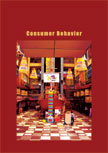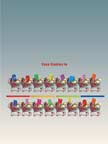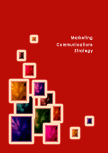Consumers Behavior
 |
Details
Chapter Code: CBC04
Textbook:
210 X 275 mm approx.
Short Case Studies
Detail Table of Contents
Workbook:
Pages : 304; Paperback;
210 X 275 mm approx
Pricing
Textbook Price: Rs. 750;
Workbook Price: Rs. 700;
Shipping & Handling Charges: Rs. 50 per book;
Books Available only in INDIA
Chapter Price : Rs. 100
To download this chapter in electronic format, click on the button below,
and select the chapter from the list of available chapters.
Buy Now
To order the entire book click on the button below, and select the book from
the list of available books:
Please allow 5 to 10 days for delivery of the
Book.
Consumer Behavior : Chapter 4
SUMMARY:
Personality of a person is the result of his individual traits. Personality distinguishes one person from another. It also determines how and why a consumer behaves in a particular way. A person's attitudes, his values in life, and the influence exerted by the people around him shape his personality. As a person grows up, his personality is altered or modified by the people or events surrounding him or due to his education. |
|
This theory, known as the Psychoanalytic theory of personality, projects the personality as the nucleus or the center of the interaction between the three systems of the id, the superego, and the ego. However a group of theorists called the Neo-Freudian theorists disagreed with Freud. These theorists were Carl Jung, Karen Horney, Alfred Adler, and Henry Sullivan. They stated that apart from unconscious biological needs, personality was a result of social relationships (culture and history and other such factors).
Carl Jung introduced the four dichotomies: 1) sensing- intuiting, 2) thinking-feeling, 3) extroversion-introversion, and 4) judging-perceiving. His theory provides such insights into the personality of a person that are very useful for the advertising function of marketing.
The Myers-Briggs Type Indicator (MBTI) model used to understand personality was developed by Isabel Briggs Myers. It uses two of the dichotomies given by Jung. They are: 1) sensing and intuiting and 2) thinking and feeling. Karen Horney believed that people's personality was actually their adaptation to their culture and also a result of the defense mechanism they developed to deal with difficult relationships. This formed the basis for CAD, a tool to understand one's personality. CAD considers three types of people -- compliant, aggressive, and detached. Alfred Adler stated that the social angle played an important role in a person's personality, and that each person pursued rational goals. Henry Sullivan stated that all behavior was directed at eradicating anxiety from one's life and reaching a state of tranquility or peace. Trait theory brought the empirical approach to the personality study.
This theory tries to study the personality in terms of exclusive individual characteristics called traits. The theory lists traits like 1) innovation 2) influence 3) materialism, and 4) consumer ethnocentrism as major influencers of behavior. Another theory which highlights the study of the following traits: 1) Openness to experience 2) conscientiousness 3) experience 4) agreeableness and 5) neuroticism (abbreviated to OCEAN) to know a person's personality, is known as the five-factor theory.
Apart from inherent traits, a consumer chooses a product, which has an image that is similar to the view he has about himself. This is called the self-concept. Every person has an opinion about himself or herself. And individuals imagine and associate certain attributes with regard to their tastes and personalities.
This image they have influences the products, brands, they buy and even the stores they frequent. Marketer needs to be familiar with the self-concept, as consumers are inclined toward products that match their selves. Thus, the concept of self helps marketers to understand, predict, and direct the purchase decisions of consumers. The specific view a person has about his self is influenced by his own psychological and physiological thoughts. This view also includes the consumer's perception of his self in the eyes of the people around him (social image).
Also he sometimes tries to attain the image of a particular person or an ideal image and communicates this to others by taking up or avoiding such consumption (of goods and services) that is reflective of that image. A person might perceive himself to have a single self or many selves. A person's perceived self is not a static concept. The same person has different views about his self at different contexts of time and place. Also the consumers will assume every product to have an individual image.
They choose such products or brands that are in congruence with their own self. The marketer has to know which role a consumer is playing and what image he has attached to the product, to effectively position his product. Marketers can use tools such as Q sort, rating scale, checklist to measure an individual's self and also find whether the consumer is able to deduct a link between his perceived self and the product's image.



